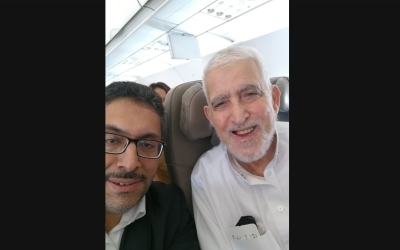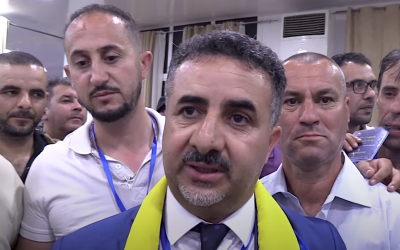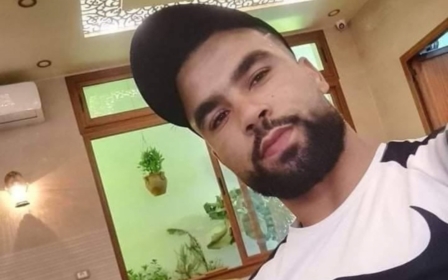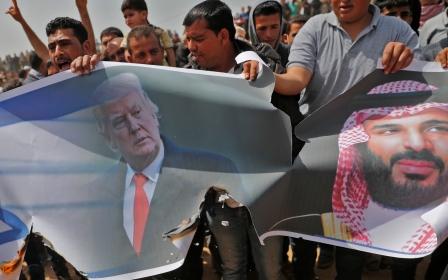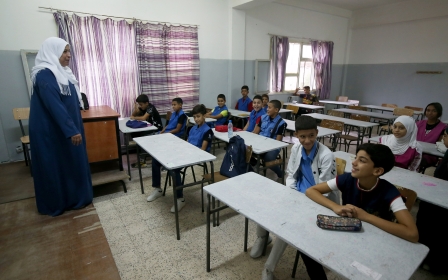Arabic press review: Anger binds Tunisia's protests
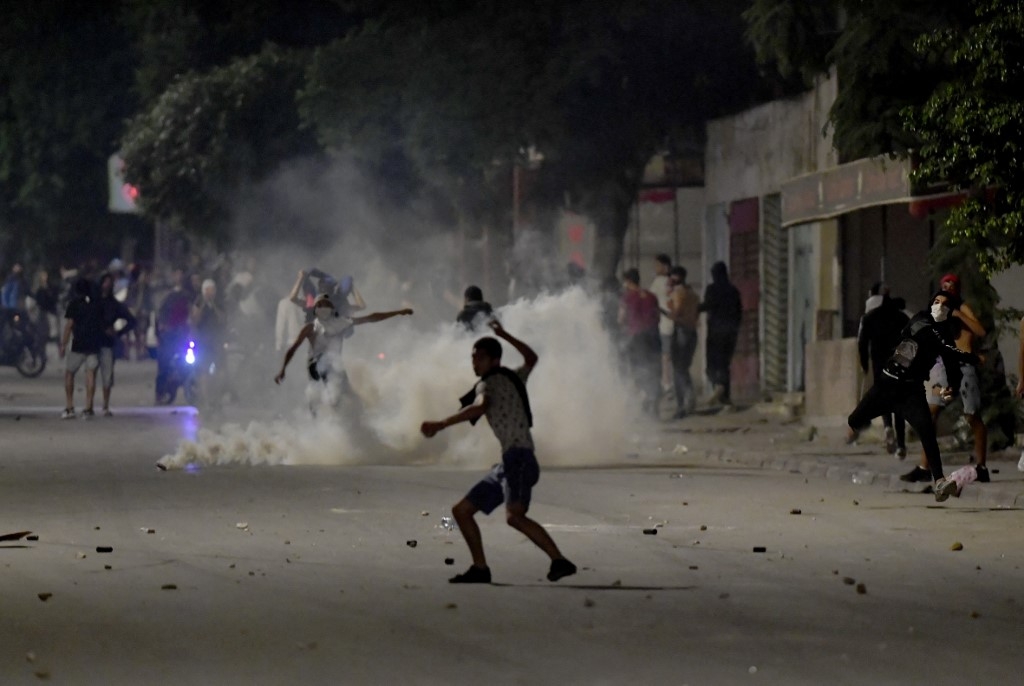
Tunisia protests differ in causes but share the anger
The causes behind Tunisia's ongoing protests vary but they are similar in their frustration with the country's political, economic, and social challenges, the Arabi21 news website said in a new report.
The London-based publication assessed the different reasons that have driven the ongoing protest since last week.
Some demonstrations erupted over the death of a 24-year-old man earlier this month from injuries sustained in late August after he fell into a ditch while being chased by police.
In the southern coastal town of Zarzis, thousands took to the streets demanding answers over the fate of migrants who drowned in a shipwreck last month.
Other protests were organised against President Kais Saied, demanding political reform as public anger grows over fuel and food shortages.
'When there is no trust in the state, anger, resentment and hatred build-up'
- Muhammad al-Juwaili, sociology professor
Muhammad al-Juwaili, a professor of sociology, told Arabi21 the protests don't have the same incentives and each one is a “reaction to a specific event that once it ends, things return to normal".
However, al-Juwaili warned that the “accumulation of anger” could explode if a major event happens that unites protesters.
“When there is no trust in the state, anger, resentment, and hatred build up," he said.
Sabreen Jelassi, also a sociology expert, said he forecasts more protests that will focus on price hikes and poor economic conditions.
Those, Jelassi said, will be hard to quell.
“The country will witness a new revolution similar to the 2010 revolution, as the country is on the road to eruption.”
Saudi Arabia and Hamas in contact
The possibility of improved relations between Saudi Arabia and Hamas has increased after Saudi authorities released the former representative of the Palestinian movement, Mohammed al-Khudari, on 19 October 2022.
Khudari, 84, was released along with his son Hani al-Khudari, and deported to Jordan, after more than three years in detention.
Saudi Arabia arrested 68 Palestinians and Jordanians in 2019 as the kingdom's relations with Israel warmed.
They were accused of having links to an unidentified "terrorist organisation" and were tried in 2020 in mass trials. In 2021 they were handed prison sentences ranging from six months to 22 years.
The trials have been marred by claims of abuse.
The Alkhaleejonline website quoted sources as saying that "there are unannounced talks to end the dispute" between Saudi Arabia and Hamas, whose ties began to falter in 2007 after infighting between Hamas and its rival, Fatah, which was criticised by Riyadh.
In a statement published on the official Hamas website, Hamas political bureau member Izzat al-Rashq, who said he had spoken to Khudari on the plane that was taking him to Amman, commended Saudi Arabia's decision to free Khudari, stating: "We hope this step will help open a new page and lead to the release of the remaining detainees.”
Hamas spokesman Hazem Qassem also described Khudari's release as a step in the right direction.
"The Hamas movement welcomes this step and hopes that it will be followed by the step of releasing the remaining detainees of the movement's supporters in Saudi Arabia," said Qassem, in a statement to Alkhaleejonline.
"Hamas has no problem in developing and strengthening its relationship with any country in the region, and we hope that al-Khudari's release will be a step in this direction," Qassem added.
Qassem also revealed that "there is communication between the movement and the Saudi authorities at certain levels”.
UAE summons Dutch envoy in solidarity with Jordan
The United Arab Emirates' ministry of foreign affairs has summoned the Dutch ambassador over what it described as interference by his country's ambassador to Jordan in the kingdom's internal affairs, according to the state news agency WAM.
Jordan's ministry of foreign affairs claimed that the Dutch ambassador had “interfered” in the application for a license to establish a local radio station that is reportedly still under legal consideration, despite the applicant being neither Dutch nor Jordanian.
Jordan said that "the request is processed according to laws and regulations and with absolute transparency, and it is incomprehensible that an ambassador representing a friendly country interferes in a case governed by laws and regulations".
The UAE ministry of foreign affairs said it affirmed "the UAE's solidarity with the Hashemite Kingdom of Jordan and expressed its strong protest against the irresponsible statements breaching diplomatic norms that were made by the Dutch ambassador on 19 October 2022, which are considered a blatant interference in the internal affairs of the Hashemite Kingdom of Jordan”.
Algeria sentences journalist to death in absentia
A criminal court in Algiers has issued a death penalty in absentia against journalist Abdo Sammar, a director of the French investigative website Mediapart, according to the London-based Al-Quds Al-Arabi newspaper.
Sammar, who is currently a refugee in France, was sentenced regarding charges of espionage and the leaking of confidential information relating to the Algerian oil company Sonatrach.
According to judicial files, Sammar was sentenced to the death penalty after it was proven that he had published, on his website, information classified as confidential related to the strategy for developing Algeria's hydrocarbon sector.
Owais Lamin, the former head of Sonatrach deals committee, who was charged with leaking the information to Sammar, received a 10-year jail sentence.
Abdelmoumen Ould Kaddour, Sonatrach's former CEO, who was also allegedly in contact with Sammar, is currently detained in Algeria after being deported from the United Arab Emirates last year after Algeria issued an international warrant for his arrest on corruption charges.
Commenting on the case via a video published on the internet, Sammar denied ever speaking to Lamin, but admitted obtaining information from sources in Sonatrach via email.
Sammar, who has been residing in France for the past three years after obtaining asylum there, has been prosecuted in Algeria over several cases related to leaking information and for communicating with foreign parties.
Middle East Eye propose une couverture et une analyse indépendantes et incomparables du Moyen-Orient, de l’Afrique du Nord et d’autres régions du monde. Pour en savoir plus sur la reprise de ce contenu et les frais qui s’appliquent, veuillez remplir ce formulaire [en anglais]. Pour en savoir plus sur MEE, cliquez ici [en anglais].


